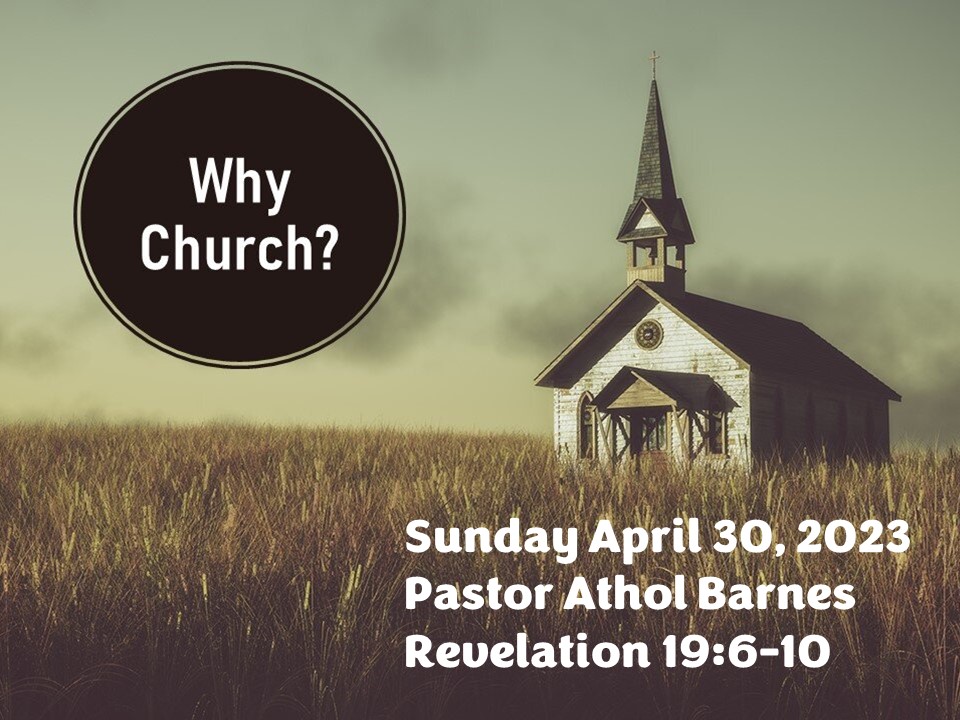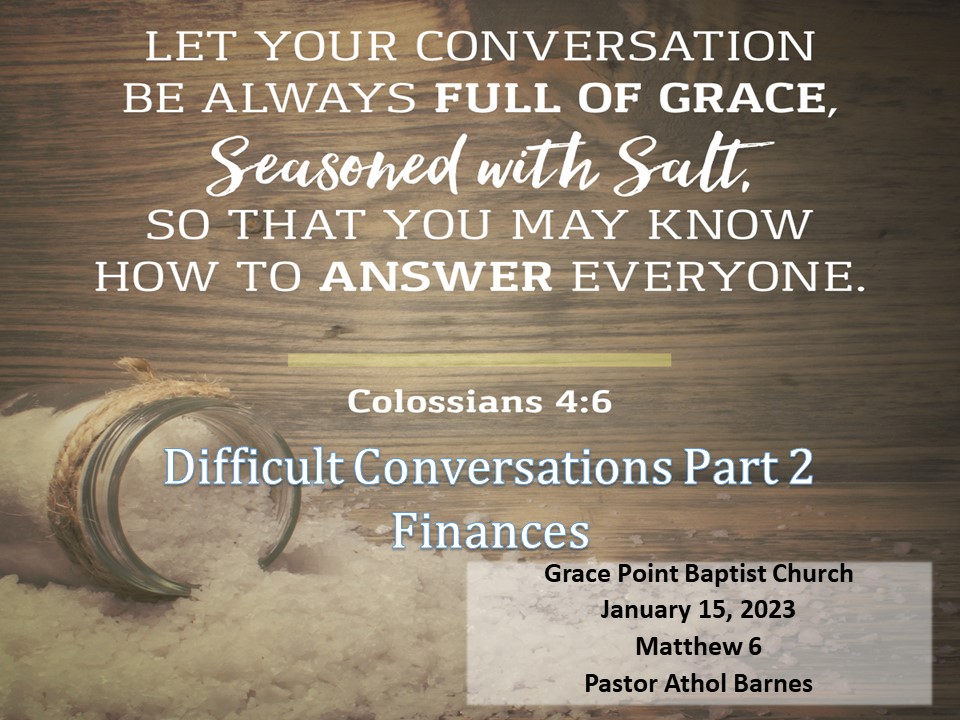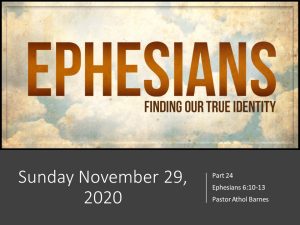
In Revelation 19 we read about the marriage supper of the Lamb. Jesus the bridegroom will be the focus, and we, the church, will be the bride. This will be a glorious celebration that includes all the followers of Jesus around the world. People from every nation, tribe, and language. This is the bride of Christ.
However, this banquet requires an invitation. Are you going to the banquet?
In Revelation 19:6 we read about the sound of a great multitude of angels singing praise to God. A sound unlike any choir we have ever heard; it will make Arrowhead Stadium sound dull in comparison. It is a cry of victory, Babylon is destroyed, our lord God reigns. The heavenly hosts saw all that God has done and they burst into praise.
And then the attention turns to this unusual bride, made up of people from every nation on the earth. How has the bride made herself ready? If you look at the church today, would you say the church globally is ready? The church, this perfect bride will be made up of the followers of Jesus, but it wont look like anything we have seen before.
The direction that God has for the global church is unchartered territory, we have never been this way before. God is constantly refining, transforming, and preparing the church.
What does the bride wear? Verse 8 tells us that the Lamb’s bride is dressed “in the righteous deeds (acts) of the saints.” We must remember that we are saved by grace through faith in Jesus Christ (Ephesians 2:8-9). The bride goes to heaven by God’s grace, and not by good works. But once in heaven, believers will be judged at Christ’s judgment seat for their faithfulness in life and in service. Christ will reward us according to our faithfulness, and the rewards we receive will make up the “wedding gown.”
Dr. Lehman Strauss writes, “Has it ever occurred to you … that at the marriage of the Bride to the Lamb, each of us will be wearing the wedding garment of our own making?” What a solemn thought!
Jesus tells a parable of the wedding feast in Matthew 22 and speaks about a man who is not dressed in the wedding garments (Matthew 22:11-14). Here is a man who thinks he is in, but he is not. A man who thinks he is part of the bride of Christ, but he is not wearing the garments of the bride. There are no deeds and no fruit in his life.
If we boil it down to the very basics, there are only two kinds of people. Those in the Kingdom and those outside of the Kingdom. And just because we sit in church every week, it does not mean we are part of the Kingdom of Heaven. It is possible to be members of the visible church and not actually part of the Body of Christ. A person is not saved by being a long-time member of any church. You personally must make a decision regarding the Gospel of Jesus Christ in order to become a member of the invisible church, or the true body of Christ.
Sometimes we see so little evidence of people being a part of the bride of Christ. Why there is such a lack of people who are clothing themselves in the righteous deeds of saints? Sadly, there are many people in the church who prefer the stench of grave clothes (Ephesians 2:1). Many people in churches today are barely on life support, you see no evidence of their new life outside of Sunday morning attendance.
Jesus indicated that even in the visible church there would be those who are not true believers, and thus not members of the invisible Church (Matthew 25:31-46).
In verse 9, the angel says, “…Blessed are those who are invited to the marriage supper of the Lamb.” There is a private invitation, are you invited? Have you made Jesus Christ your lord and savior? Are you part of the family? Do you have your invitation to the marriage supper of the lamb?
Before we become Christians, we are blind to the glory of God, we are deaf to the voice of the Holy Spirit in our lives, we have no love for God, we have no sense of a personal relationship with the creator God.
If you don’t have a sense of the presence of God, if you don’t know him as your heavenly father, if you don’t hear the voice of the Holy Spirit guiding your life, you may very well be dead in your spirit.
If you don’t have a personal relationship with Jesus Christ, you may be a registered member of the church, but you are not a member of the invisible church, and you are not going to spend eternity with Jesus Christ, the head of the church (Matthew 7:21).
Ephesians 2:10 says, “For we are his workmanship, created in Christ Jesus for good works, which God prepared beforehand, that we should walk in them.” God saved us, and prepared works for us to do that become the linens that we will wear at the Marriage supper of the lamb.
We don’t work to be saved, but we joyfully serve because we are saved.
Our motivation for serving the Lord is to bring glory to the name of Jesus, to serve him out of love and gratitude. That earns us the fine linens.
The church is going to the marriage supper of the lamb, will you be attending?











